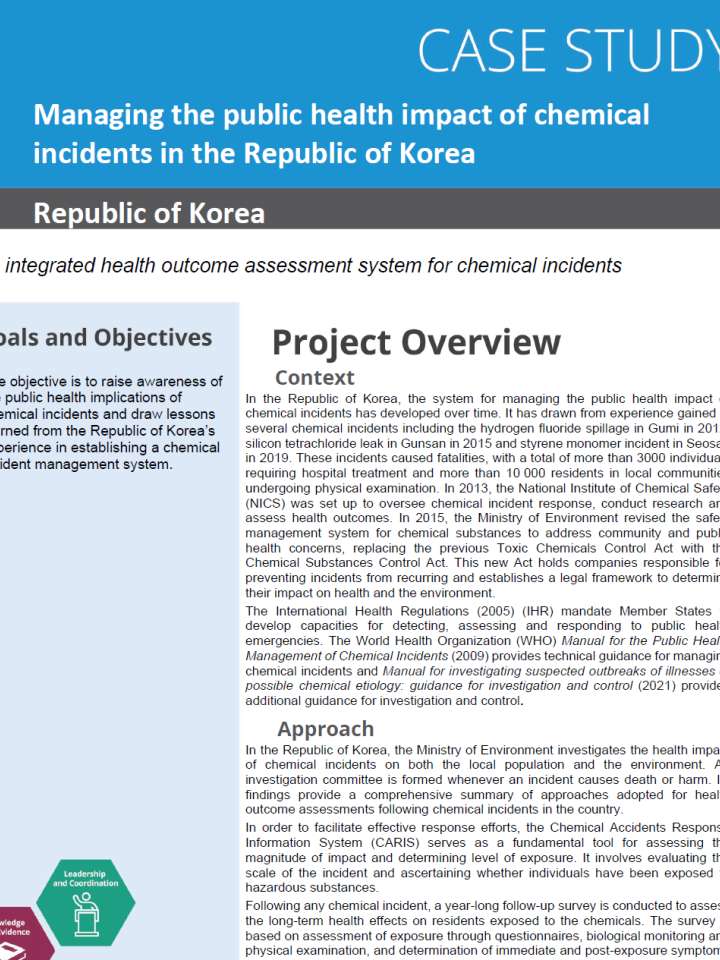Managing the public health impact of chemical incidents in the Republic of Korea: case study
The case study raises awareness of the public health implications of chemical incidents and draws lessons learned from the Republic of Korea’s experience in establishing a chemical incident management system.
The Republic of Korea has implemented various measures to enhance its management of the public health impact of chemical incidents. The country has actively followed the WHO Manual for the Public Health Management of Chemical Incidents and demonstrated its commitment to meet the health security requirements specified in the IHR.
The key lessons learned shared in this document include:
- A responsive legal framework has significantly improved management of the public health impact of chemical incidents.
- Medical specialist assessments with categorized outcomes have helped to determine ongoing response strategies and to enhance public confidence in response efforts.
- Additional resources have now been made available, including contributions from private business entities and aid to establish and maintain long-term health assessments and follow-up arrangements.
Some of the key recommendations provided are:
- Engaging stakeholders (government, experts, local residents, chemical companies, including the private sector and the community) fosters a collective and coordinated approach to chemical incident prevention.
- Establish institutions that can provide expertise, resources and guidance in assessing risks, managing incidents and ensuring the well-being of affected individuals.
Explore further
